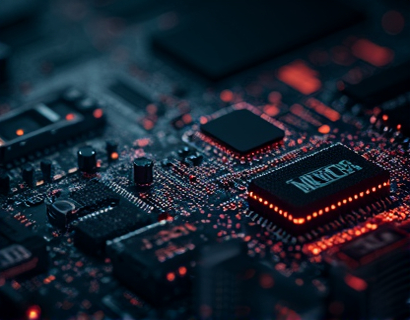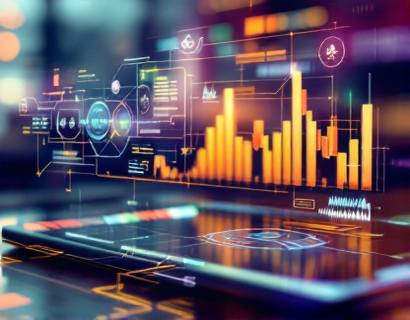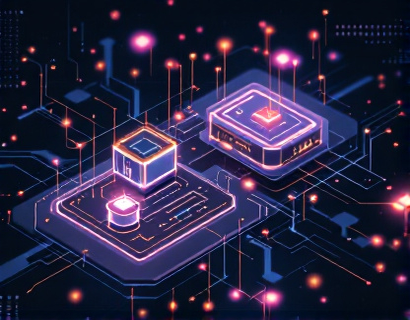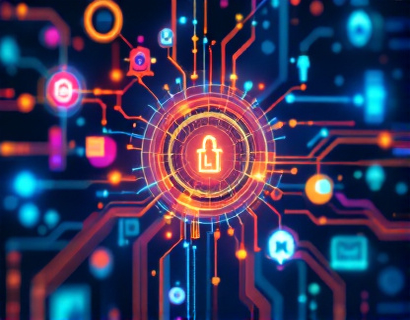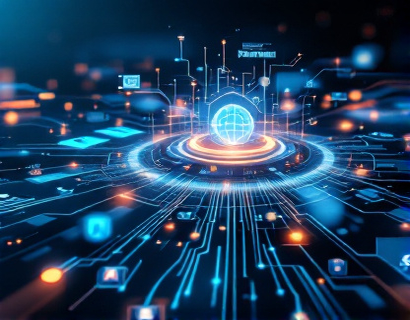Transforming Productivity in the Digital Age: The Synergy of Crypto and AI
The integration of cryptocurrency and artificial intelligence (AI) is revolutionizing the way we approach digital productivity. This synergy is not just about combining two advanced technologies but about creating a new paradigm where efficiency, innovation, and security converge to enhance user experiences. For tech professionals and enthusiasts, understanding how these technologies interact and complement each other is crucial for staying ahead in the rapidly evolving digital landscape.
The advent of blockchain technology has introduced a decentralized and secure way to conduct transactions and manage data. Cryptocurrencies, built on blockchain, offer a new form of digital currency that is transparent, immutable, and resistant to censorship. When combined with AI, which excels in processing vast amounts of data to uncover patterns and make predictions, the potential for innovation becomes immense. This article delves into the latest tools and applications that leverage this synergy to boost productivity and foster creativity.
Enhancing Data Security with Crypto and AI
One of the primary benefits of integrating cryptocurrency and AI is the enhancement of data security. AI algorithms can detect and respond to security threats in real-time, a task that would be impractical for traditional security systems. For instance, machine learning models can analyze network traffic patterns to identify anomalies that may indicate a cyber attack. When these systems are powered by blockchain, the integrity and immutability of the data ensure that security measures are both robust and trustworthy.
Blockchain-based identity verification systems, powered by AI, can provide secure and seamless authentication processes. These systems reduce the risk of identity theft and fraud by verifying user identities through decentralized and encrypted methods. For businesses, this means enhanced protection of sensitive data and compliance with stringent regulatory requirements. For individuals, it translates to greater control over personal information and a more secure online presence.
Optimizing Workflows with Smart Contracts
Smart contracts, self-executing contracts with the terms directly written into code, are a prime example of how AI and cryptocurrency can streamline workflows. These contracts automatically enforce and execute agreements when predefined conditions are met, eliminating the need for intermediaries and reducing transaction costs. AI can further optimize smart contracts by analyzing historical data to predict outcomes and suggest improvements.
In project management, smart contracts can automate payment processes based on milestone achievements, ensuring that all parties are held accountable and that payments are made promptly. For developers, AI-driven tools can analyze code repositories to identify potential bugs or inefficiencies, suggesting optimizations that can be encoded into smart contracts for automated execution. This not only speeds up development cycles but also enhances the reliability and performance of software applications.
AI-Powered Cryptocurrency Trading
The intersection of AI and cryptocurrency has significantly impacted the trading landscape. AI algorithms can process vast amounts of market data, including historical prices, news sentiment, and social media trends, to make informed trading decisions. These algorithms can identify patterns and trends that are beyond human capability, allowing for more accurate predictions and better investment strategies.
Automated trading bots, powered by AI, can execute trades 24/7 without emotional bias, leading to more consistent and profitable outcomes. For traders, this means the ability to manage multiple assets and execute complex strategies with minimal manual intervention. Additionally, blockchain's transparency ensures that all transactions are recorded and verifiable, reducing the risk of fraud and increasing trust in the market.
Enhancing User Experience through Personalization
AI-driven personalization is another area where cryptocurrency and AI converge to enhance digital productivity. By analyzing user behavior and preferences, AI can tailor experiences to individual needs, making applications more intuitive and user-friendly. In the context of cryptocurrency, personalized wallets and financial management tools can provide users with insights into their spending habits, investment portfolios, and security measures.
For instance, AI can recommend optimal investment strategies based on a user's risk tolerance and financial goals, all while ensuring that transactions are secure and compliant with regulatory standards. Cryptocurrency exchanges can use AI to offer personalized recommendations for coins and tokens, helping users discover new assets that align with their interests and investment strategies. This level of personalization not only improves user satisfaction but also drives engagement and loyalty.
Decentralized Applications (DApps) and AI
Decentralized applications (DApps) are a cornerstone of the blockchain ecosystem, offering decentralized alternatives to traditional web applications. When AI is integrated into DApps, the potential for innovation becomes even more profound. AI can enhance the functionality of DApps by providing intelligent services such as natural language processing, image recognition, and predictive analytics.
For example, a decentralized social media platform powered by AI can curate content based on user preferences, filter out spam and malicious content, and even facilitate decentralized content moderation. This creates a more secure and user-centric environment, where users have greater control over their data and interactions. Developers can leverage AI to build more sophisticated and efficient DApps, opening up new possibilities for decentralized applications across various industries.
Supply Chain Optimization with Blockchain and AI
Supply chain management is another sector that benefits greatly from the integration of blockchain and AI. Blockchain provides a transparent and immutable ledger for tracking goods from production to delivery, while AI can optimize every step of the process. AI algorithms can predict demand, optimize inventory levels, and identify bottlenecks in the supply chain, ensuring that operations run smoothly and efficiently.
For instance, AI can analyze real-time data from sensors and IoT devices to monitor the condition of goods during transit, adjusting routes and storage conditions to prevent damage. Blockchain ensures that all transactions and status updates are recorded and verifiable, enhancing traceability and accountability. This synergy not only reduces costs and improves efficiency but also builds trust among all stakeholders in the supply chain.
Conclusion
The integration of cryptocurrency and AI is transforming productivity in the digital age by enhancing security, optimizing workflows, personalizing user experiences, and revolutionizing industries such as finance, trading, and supply chain management. As these technologies continue to evolve, the opportunities for innovation and efficiency will only grow. For tech professionals and enthusiasts, embracing this synergy is essential for staying competitive and leveraging the full potential of the digital landscape.




